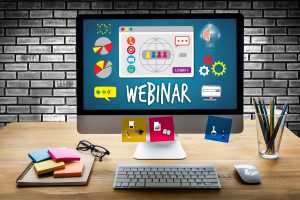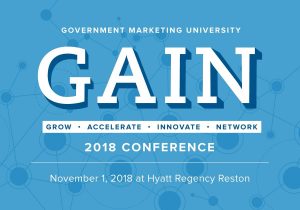
With fall upon us and colder weather coming, our "hibernation" instinct kicks in and people start to stay in more. But even if you are ensconced in layers of blankets with a pumpkin latte in hand, you can still grow your professional knowledge base. Virtual events have been growing in popularity among event planners and attendees alike. In the government market specifically, over 60% of federal employees surveyed reported attending one or more webinars in the past year. 46% of government marketers surveyed are planning on investing in webinars in the coming year.
The allure of virtual events is cost and time savings. With no physical venue to rent and no need to travel, both planners and attendees save money as well as time. These virtual meetings run the spectrum from basic webinar-type presentations of power point slides, to interactive video demos, to fully immersive virtual worlds with online tradeshow booths that include the ability to chat with exhibitors. But no matter the format, all virtual events share a key challenge - how to engage and keep the attention of attendees who are in an environment full of distractions. Meeting this challenge requires commitments on the part of attendees and event planners. Continue reading







